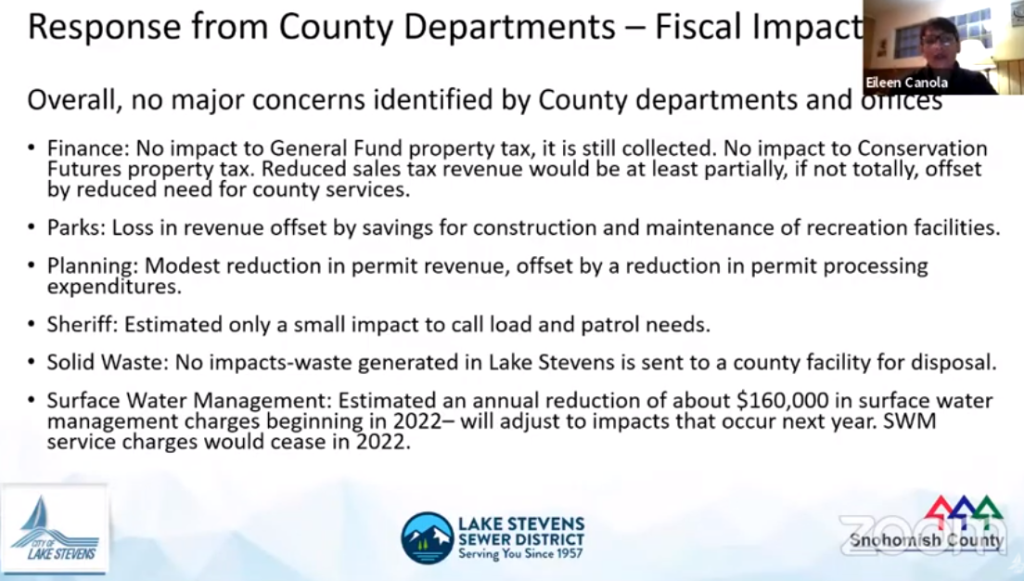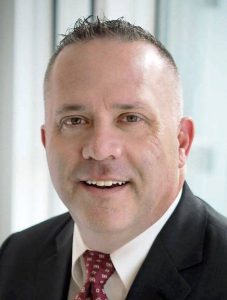The Lake Stevens Southeast Interlocal Annexation is the first of its kind. Before state legislation passed in early 2020, residents were able to vote on annexation. But now, counties and cities can do so through interlocal agreements in order to comply with the Growth Management Act. The county land that will soon become a part of the City of Lake Stevens will make it so that the entire lake becomes part of the city. Excited at this notion, Mayor Gailey explains how this brings to life the vision of being “one city around the lake.”
The First Annexation of its Kind
On Wednesday, July
28th, Snohomish County officials approved the annexation of county territory
with the City of Lake Stevens. The property is located Southeast of the city
and encompasses 500 acres of land and 1,000 acres of lake. This annexation is
an indication of the city’s growth, but neither county nor city residents voted
on the matter as officials used a new method of annexation called interlocal
annexation.

Senate Bill 5522, passed in March of 2020, provides “cities with the ability to annex unincorporated areas pursuant to a jointly approved interlocal agreement with the county.” Essentially, annexations can be enacted in Washington as long as the county and city governments agree to do so.

According to the City of Lake Stevens’s Mayor, Brett Gailey, this is the first instance where the interlocal method of annexation has been used, as the bill became effective during the first half of 2020. “Lake Stevens is the first city to do an annexation like this,” he said. “We’re the first city that I know of to use this procedure.”
There is a series of requirements to the process, as the Municipal Research and Services Center of Washington (MRSC) explains in an official document titled “Annexation by Washington Cities and Towns,” dated Jun 2020.
On page 89, after mentioning the recent passing of bill SB 5522 that introduced the interlocal method of annexation, it reiterates how “under the new method, a code city may annex unincorporated territory pursuant to an interlocal agreement between the city and county.” But, the document also notes how the said agreement is subject to several requirements.
The first requirement noted in the document details that a city must notify the governing authorities of the following entities:
- “Fire protection districts, regional fire protection service authorities, water-sewer districts, and transportation benefit districts within the proposed annexation area;.”
- “Any city adjacent to the proposed annexation area where the sole access or majority of egress and ingress of the area is served by the transportation network of the impacted city.”
Then, according to the MRSC, each entity that the annexation would impact has 30 days from the time they have been notified to tell “the code city whether it would like to be a party to the interlocal agreement with the city and county. If timely notice is provided, the notifying district(s) and/or city must be included as a party to the agreement.”
Additionally, if any district or city disagrees with the annexation, then, as MRSC states, the motion cannot proceed using this interlocal method.
The rest of the requirements involve having a public hearing, the interlocal agreement itself (which gets into the details of land boundaries and jurisdictions), and an annexation ordinance. All the details of which are available to the public at mrsc.org.
Speaking to the practicality of the Lake Stevens Southeast Interlocal Annexation, Mayor Gailey details how this motion to annex results from the city’s projected growth and how said growth must comply with the Growth Management Act.
The Growth Management Act and Urban Growth Areas
The Growth Management Act (GMA) was first adopted in 1990. According to mrsc.org, the GMA is “a series of state statutes […] that requires fast-growing cities and counties to develop a comprehensive plan to manage their population growth.”
The act established 13 goals that serve as the parameters for all comprehensive growth plans. Some of the goals include developing “concentrated urban growth” and focusing on “sprawl reduction.”
“For us, as part of the GMA, we have our Urban Growth Area that we need to eventually grow into to comply with the GMA,” explains Mayor Gailey. “So, in this case, that’s what we’re doing. That area is in our UGA, and we have to grow into it, and that’s what this annexation is about.”
One statute in particular that Mayor Gailey focused on involves “public facilities and services.” Under the GMA, the mayor explains how cities are expected “to provide services in their UGAs and expand their cities limits into that area” when they are able.
Giving an example of a specific service, Mayor Gailey notes emergency response time concerns for county residents in that Southeast growth area.
“So for example,” he says, “and nothing against the county, the county has just a couple of deputies that cover [the entire] county that go all the way out to Sultan, right? So if there’s a response time issue, it’s because the county could be so far away, whereas Lake Stevens is a block away.”
“Our guys transit through that area all the time, getting from the police station to downtown,” he continues, “so our response times are going to be so much faster than the county’s.”
Mayor Gailey also mentioned how, in dire emergencies, Lake Steven’s law enforcement have often responded to emergency calls in the city’s UGA, as they can arrive at the scene sooner and then hand the situation over to county deputies once they reach the destination.
“So that’s where we’re at as city right now with Lake Stevens and this annexation; we have the ability to take care of those folks, provide more local and accessible services in those areas, so that’s what triggers that annexation — is being able to do that,” he says.
One City Around the Lake
While the legislative text describes the annexation jurisdiction as 500 acres of land and 1000 acres of lake, Mayor Gailey explains how this simply implies that the entire lake will now be a part of the City of Lakes Stevens.
According to the
mayor, the part of the lake in the Southeast UGA will not change, as it is
already developed. But, in a way, it makes the City of Lake Stevens feel
complete. “What it does do,” he explains, “is it creates, you know, our vision
as a city is to be one city around the lake, and this completes that vision.”

Elaborating on the lake in relation to the city and the county, he says, “Beforehand we had a third of the lake that was in the county and so one of the things with that is that a third of the costs go with the county and a third maintenance of the lake is with the county,” he explains. “Whereas now it won’t be, it’ll all be within the city.”
Even though voters weren’t involved in this annexation decision, Mayor Gailey explains how county residents — soon to become city residents — will have more opportunities to vote in the future due to the annexation. “We have four city council races that are up, and they’ll be able to vote in those council races now,” he says, “and choose who they want to have local representation with, whereas if they were still in the UGA, they wouldn’t have that capability.”
More than anything, Mayor Gailey is optimistic about the future and about bringing more citizens into the city’s fold. “I’m excited about it. It’s exciting to complete the city around the lake vision,” he says, “and bringing in those folks into the city and being able to provide services for them and they’ll have the ability to vote on local elections that affect them directly, and just continue to build a great city: Lake Stevens.”
The Southeast interlocal annexation is scheduled to become effective on August 24, 2021. For more information, visit lakestevenswa.gov.
Author: Bo John Brusco











2 Responses